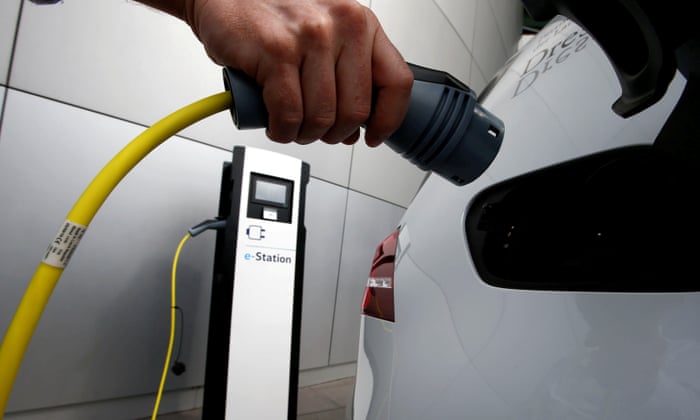
A VW e-Golf electric car being charged in Dresden, Germany. Electric cars move pollution from our cities to distant power plants. Photograph: Fabrizio Bensch/Reuters
Will our streets be pollution free when the last petrol and diesel cars are sold in the UK in just over two decades time? Sadly not. This is for two main reasons. First, we will still have diesel lorries and buses. Second, electric cars still release particle pollution into the air from wearing tyres, brakes and road surfaces. Already more particle pollution comes from wear than from the exhausts of modern vehicles.
The trend towards open disc brakes rather than sealed drums looks to be making the situation worse and toxicologists say that these particles are not harmless. Despite regenerative braking, where electric motors are put into reverse to slow the car, one study found that the extra weight of the batteries means more particle pollution compared with the petrol or diesel vehicles that we buy today.
Electric cars move pollution from our cities to distant power plants. For big benefits we need carbon-free electricity. Most studies focus on average driving and average electricity generation. Instead, if we consider real urban driving and off-peak charging, electric cars are already a low pollution option for Belgium, where over half of electricity comes from nuclear power, and for Beijing, where more efficient gas-fired power stations are rapidly replacing old coal ones.
A quarter of England’s car trips are less than two miles. We can be more ambitious. Replacing petrol and diesel cars with electric would miss the opportunity to save the NHS around £17 billion over the next 20 years by swapping short car journeys for walking or cycling.
[“Source-theguardian”]


